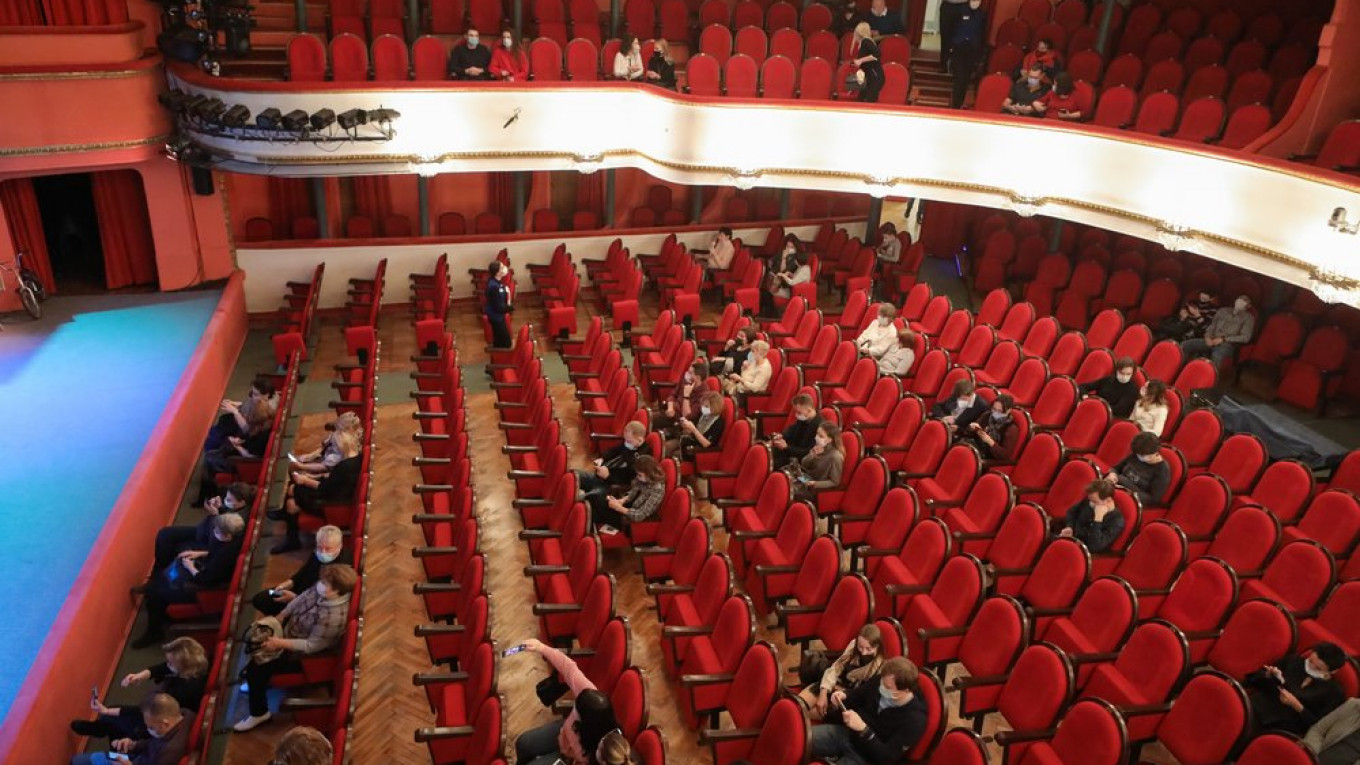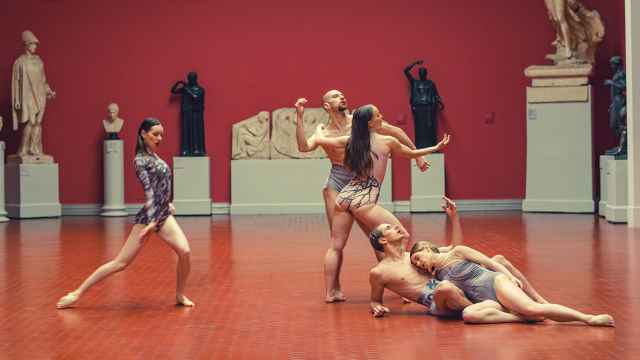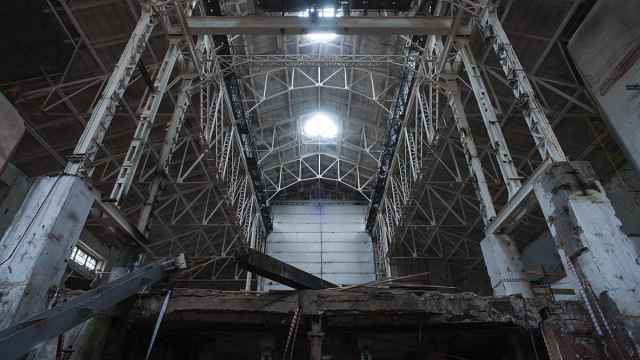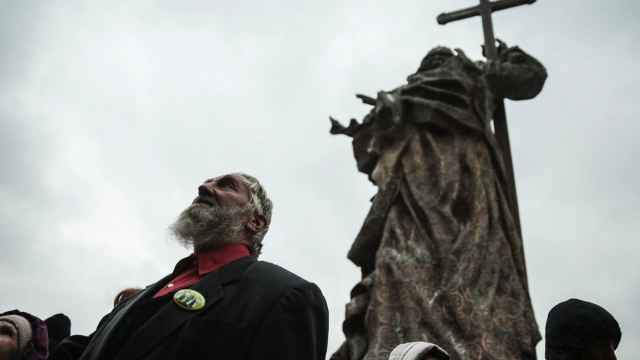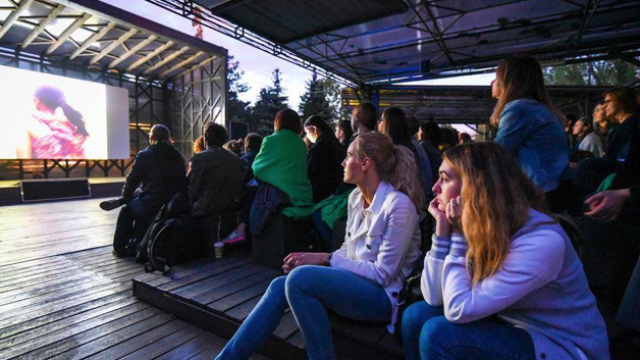The year 2020 was not a good year for the arts. In Russia, as elsewhere, it was a year of closures, cancellations, postponements, broken contracts, checkerboard seating, air scrubbing equipment, performers and personnel with Covid, self-isolation regimes, and catastrophic loss of both lives and income.
Planning was often useless. As Yelena Kovalskaya, director of the Meyerhold Center in Moscow told The Moscow Times, “In July we didn’t know what the requirements from the Mayor’s Office and the Consumer protection service would be for September, and in September we didn’t know what the situation would be in December.”
2021 is starting with much of the same uncertainty. But there is hope that current measures and vaccines will lead to a return to normality by the end of the year, and a combination of new skills and innovation will make this a richer year in the arts than anyone could have expected nine months ago.
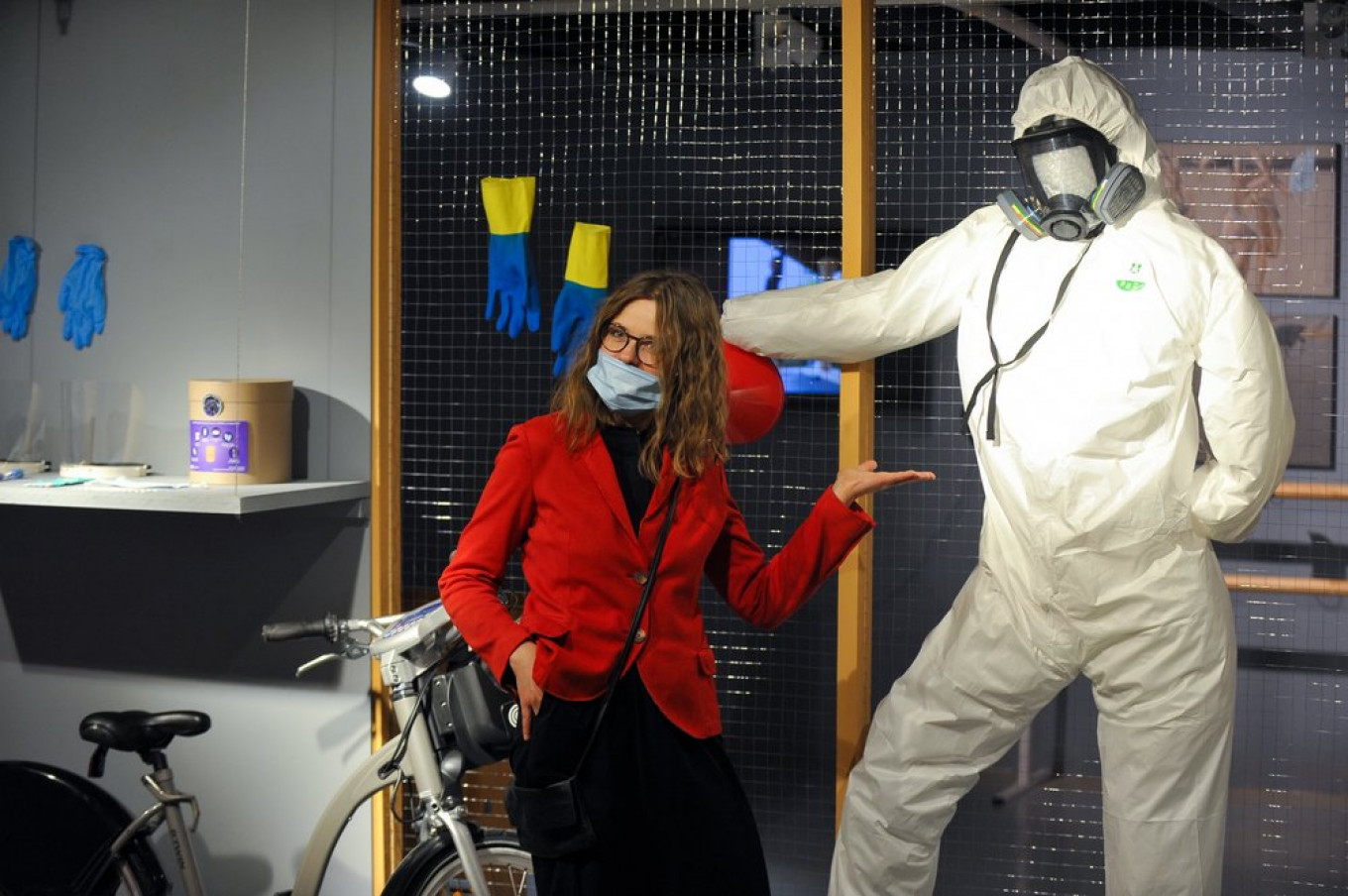
For better or worse
“Museum work is done according to a plan," Tatiana Utkevich, scientific secretary of the State Tretyakov Gallery, told The Moscow Times. "You need to have a clear sense of what needs to be done and when. All exhibitions and major projects have an entire educational program that must be designed well in advance.”
In normal years, large state museums schedule major exhibitions for up to five years in advance. Smaller exhibitions require at least a year or two of preparation. In a museum like the State Tretyakov Gallery, which has myriad exhibition spaces, this involves planning for dozens of shows simultaneously.
Every year the State Pushkin Museum of Fine Arts holds about 10 exhibition projects with works from other museums, libraries, and private collections. This is about a third of their yearly exhibitions.
The pandemic made coordinating with partners in Russian regions, which work under different restrictions than Moscow, and abroad sometimes impossible. As Utkevich said, their foreign partners “are all closed, too. Their countries have their own Covid restrictions that often don’t coincide with ours. When we’re ready, they aren’t, or the other way around…”
In the performing arts, major theaters plan their schedule for up to two seasons in advance and contract with star performers up to three years in advance. Smaller institutions set their schedules for at least six months in the future. In 2020, schedules broke down instantly. "In the pandemic, [foreign performers] either couldn’t come here or were afraid to,” Vladimir Urin, director of the Bolshoi Theater said.
Another problem has been the ban on in-house work for performers, musicians, directors and other personnel older than 65. In some cases, new performers had to be prepared for roles. At the Romen Gypsy Theater where older singers and dancers are the headliners in several productions, theater director Natalya Romantsova told The Moscow Times that they simply had to cancel their most popular shows.
The rule to keep the audience at 25% capacity has forced the Meyerhold Center to drop 12 shows entirely because the small audience revenues won't even cover basic expenses for opening the theater. Subscription events are yet another problem. People purchased subscriptions in the fall of 2019 for the 2019-2020 season. In some cases, the concert halls cancelled the events and returned the money to the subscribers. In other cases, halls try to reschedule. For example, the Tchaikovsky Hall announced that a subscription concert planned for Jan. 8 had been moved to a date in September — presumably far enough into a restriction-free future.
And finally, there is the constant problem of performers or other key personnel falling ill. Satyriсon Theater Director Vladimir Kazachenko told The Moscow Times, “Actors regularly take Covid tests, there are machines to recirculate the air in all the production and rehearsal rooms. Before the shows we check the temperature of the audience members before allowing them in, ensure that they keep their masks on, seat only 25 % of the hall, and see that all the theater personnel wear masks and gloves. We also sent a third of our personnel to work from home.”
But despite all this, they had to cancel three performances due to performers falling ill. The only consolation is that this appears to be a better record than many other theaters in the capital.
At present, in Moscow arts institutions are operating under virtually the same set of restraints that ruled them in 2020. All the same, they have big plans for 2021 — and a set of quickly learned skills and innovative programming.
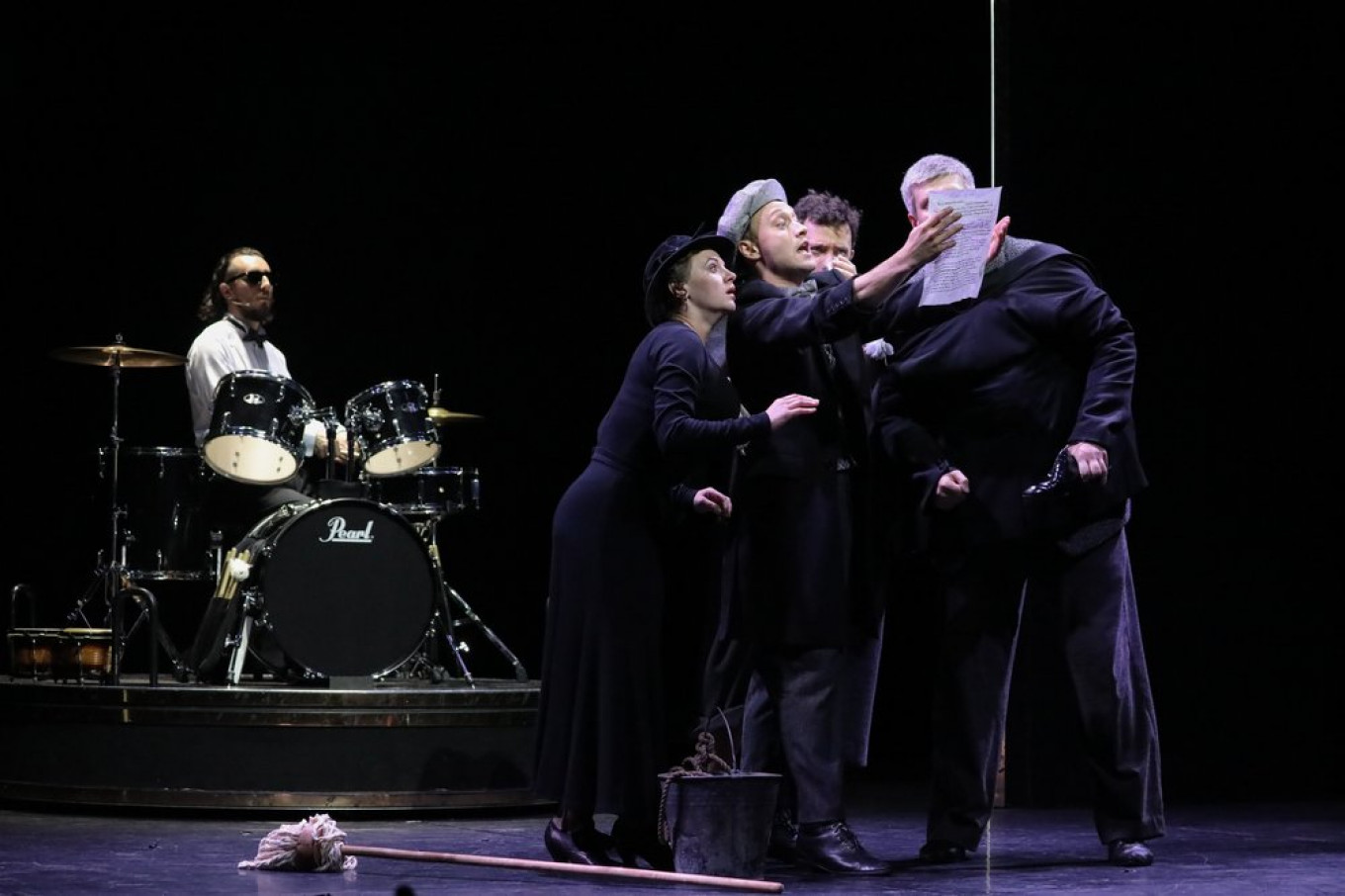
Reaping the cultural harvest planted in 2020
In many museums, exhibitions are being extended and others moved up months or even years. The State Tretyakov Gallery is celebrating the reopening of museums on Jan. 16 with three new shows: Robert Falk, Alla Urban and Alexander Benois and the World of Art. The State Pushkin Museum has dozens of shows planned and almost ready to go, starting with a big show of works by the video artist Bill Viola set to open in March. The museum is continuing its celebration of collectors with a show of works gathered by the Morozov brothers planned to open in October.
The Garage Museum of Contemporary Art is keeping up several shows, including their Second Triennial of Russian Contemporary Art (now set to run until Feb. 28) and will open several new shows in March. One, called Present Continuous, was inspired by the unrealized projects of the past year. It will exhibit projects that were never made, such as a dance hall designed by architect Igor Pyatkin for Gorky Park; Francisco Infante-Arana’s light and sound project for Red Square; and a collection of project ideas by women artists in an unpublished catalog of the Museum of Desire.
The AZ Museum was ready to open its month-long holiday exhibition, Glad Tidings, of works by Tatyana Chernova in December just as museums were ordered to close. It will stay up for several more weeks after museums reopen on Jan. 15. The museum also plans two major shows this year using works from their own collection, including a celebration of the 90th anniversary of artist Anatoly Zverev’s birthday.
The Museum of Russian Impressionism has been able to extend their ground-breaking show of works by Sergei Vinogradov until March 31.
Every museum, theater, concert hall and exhibition space has spent the year ramping up their online presence, producing online projects, videos, podcasts, zoom master classes, conferences, films, and other events. In many cases, this has widened their audience exponentially. The rather small Romen Gypsy Theater reached more than 50,000 people when their celebration of International Roma Day went online. The Museum of Moscow, which opened an exhibition called VKHUTEMAS 100. School of the Avant-Garde just before the museum closures, has put up an enormous online program here and uploaded a half-dozen films on their Youtube channel here to keep art lovers happy until they can visit the exhibition in person.
On stage, audiences will reap the pleasures of postponed premieres. At the Bolshoi Theater, director Vladimir Urin said they were compelled to correct the schedule and “almost all the premieres that had been scheduled for the first half of the season [in 2020] have been moved to this year. So, in 2021 there will be a premiere every month.”
In January Georges Bizet’s “Les pêcheurs de perles” will premiere on the Boris Pokrovsky Chamber Stage and in February — Richard Strauss’ “Salome” with a libretto by Hedwig Lachmann based on the play by Oscar Wilde and “Four Characters in Search of a plot,” a program of one-act ballets, will be performed on the historic stage.
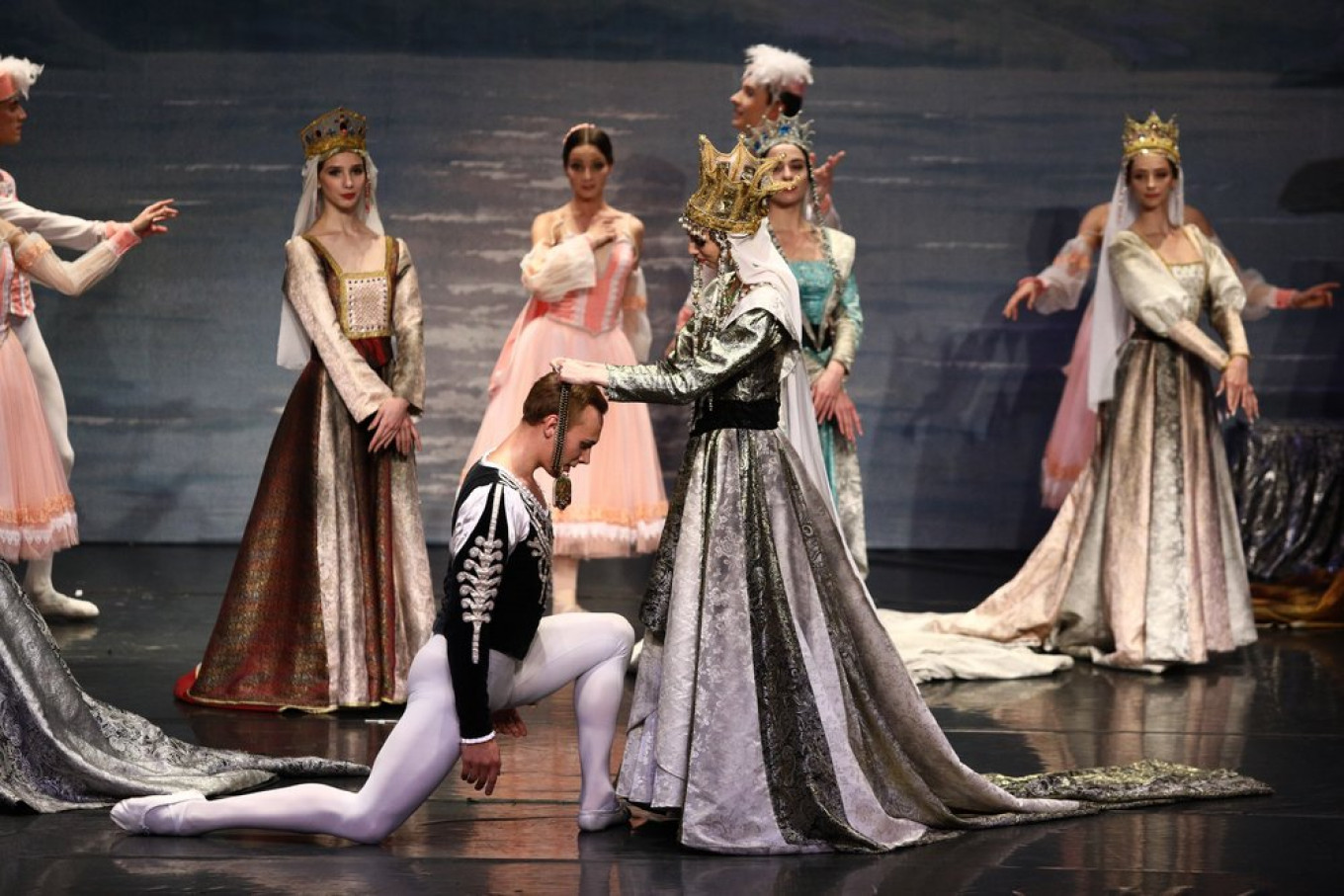
The previous year has also caused some re-evaluation. Online programs and projects are likely to become a standard, growing part of all cultural institutions. The Meyerhold Center, a state-supported space that hosts private theater troupes, is casting their eyes far outside the capital. “We are in favor of decentralization,” director Yelena Kovalskaya said, “especially of private theaters, which are mostly found in the capital cities today. In the fall we’re launching a caravan of independent theaters to tour the country.”
“In general,” she added, “we’re thinking about the future without any fear.”
A Message from The Moscow Times:
Dear readers,
We are facing unprecedented challenges. Russia's Prosecutor General's Office has designated The Moscow Times as an "undesirable" organization, criminalizing our work and putting our staff at risk of prosecution. This follows our earlier unjust labeling as a "foreign agent."
These actions are direct attempts to silence independent journalism in Russia. The authorities claim our work "discredits the decisions of the Russian leadership." We see things differently: we strive to provide accurate, unbiased reporting on Russia.
We, the journalists of The Moscow Times, refuse to be silenced. But to continue our work, we need your help.
Your support, no matter how small, makes a world of difference. If you can, please support us monthly starting from just $2. It's quick to set up, and every contribution makes a significant impact.
By supporting The Moscow Times, you're defending open, independent journalism in the face of repression. Thank you for standing with us.
Remind me later.



